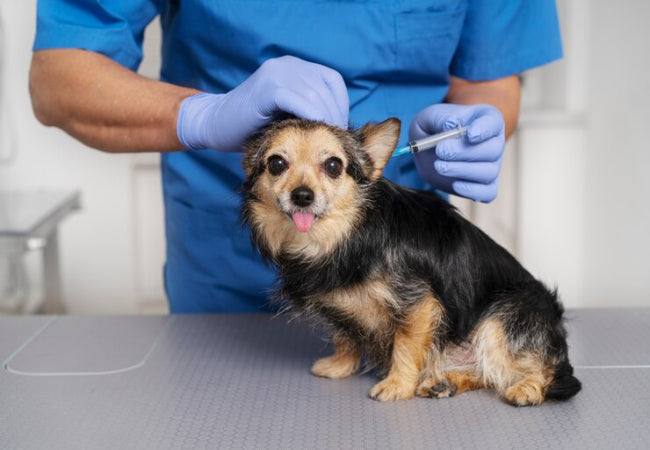Socialize a Puppy 2025: Vet Recommended Socialization Timeline 🐶✨

In this article
Socialize a Puppy 2025: Vet Recommended Socialization Timeline 🐶✨
By Dr. Duncan Houston BVSc
Puppies are cute—but they’re not blank slates forever. The first 16 weeks of life are a critical period for social development, and what your puppy experiences during this time can shape their entire personality.
I’m Dr. Duncan Houston, veterinarian and founder of Ask A Vet. In this guide, I’ll walk you through how, when, and where to socialize your puppy so they grow up confident—not fearful or reactive.
📅 Puppy Socialization Timeline
Weeks 3–8 (with breeder or shelter)
- Handling by humans, littermates, and caregivers
- Exposure to sounds, textures, toys, and different environments
- This is the breeder’s job—but good breeders start early!
Weeks 8–12 (Early Socialization Phase)
- The most important window for exposure
- Start slowly—new people, surfaces, smells, sounds
- Enroll in puppy preschool classes if vaccinated
Weeks 12–16 (Confidence Building)
- Gradually introduce new dogs, environments, and objects
- Practice gentle vet and grooming handling
- Exposure to bicycles, cars, umbrellas, children, and other pets
🧠 Why Socialization Matters
- Reduces fear and anxiety in new situations
- Prevents fear-based aggression later in life
- Improves vet visits, grooming, travel, and training success
✅ What to Expose Your Puppy To
- Men, women, children, hats, glasses, uniforms
- Other puppies and dogs (safe, vaccinated only)
- Surfaces: wood floors, gravel, grass, metal grates
- Sounds: doorbells, vacuum, traffic, fireworks (gradually)
- Handling: paws, ears, tail, mouth (with rewards)
🚫 What to Avoid
- Dog parks (until fully vaccinated)
- Uncontrolled or scary experiences
- Overwhelming stimulation all at once
- Punishment during socialization—this creates fear
🎓 Vet Tips for Better Socialization
- Always pair new experiences with food or play
- Let the puppy set the pace—don’t force interactions
- Use a checklist to track exposures and reactions
- Handle ears, paws, and mouth regularly to prep for exams
🔗 Socialization
- Explorer Harness – Gives safe control in new environments
- Snuffle Ball – Calming enrichment before or after outings
- Dual Pocket Dispenser – Store high-value training treats + poo bags
👩⚕️ When to Talk to a Vet or Trainer
- Fearful, aggressive, or overly shy behavior
- Freezing, barking, or growling when meeting new people
- Persistent fear of noises, travel, or handling
📋 Summary Excerpt
Early socialization shapes your dog for life. A veterinarian explains the best timeline, experiences, and tools to help your puppy grow into a confident, calm adult.
❓ FAQs
-
Q: When should I start socializing my puppy?
A: As soon as you bring them home—ideally by 8–12 weeks, while being mindful of vaccine status. -
Q: Can I socialize my puppy before they’re fully vaccinated?
A: Yes, in controlled environments like homes, puppy classes, or vet-approved settings. Avoid dog parks or unvaccinated dogs. -
Q: What if I missed the socialization window?
A: It’s never too late! Adult dogs benefit from slow, reward-based exposure to new experiences. You may need a vet or trainer’s help.






